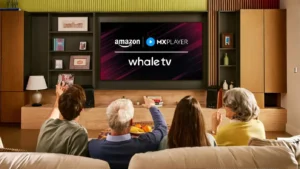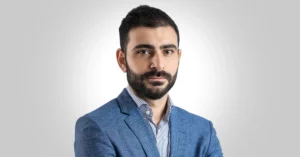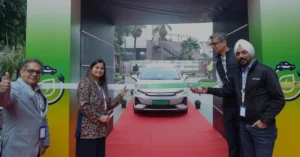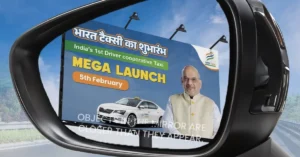According to various reports, the recently launched Coca-Cola and Pepsi rival ‘Palestine Drinks‘ has hit the multimillion sales mark within under a two month period. The sales mark has reached four million cans until now.
Based in Malmo, Sweden, operated under Safad Food AB and founded by three Palestinian brothers Hussein, Mohammed, and Ahmad Hassoun, it’s no wonder how Palestine Drinks has garnered skyrocketing demand as consumers globally boycott US-based brands over their perceived ties with Israel.
In a statement to The National, Palestine Drinks said that the company is finding it difficult to keep pace with production amid the rising demand. Some restaurants in Europe have also started boycotting American market leaders.
Around six months ago, the trio decided to create an alternate brand to Coca-Cola and Pepsi – fulfilling the hopes of the supporters of Palestine globally. The brand quickly attracted millions of hits across social media and also garnered interest from potential importers seeking to stock its product.
The soft drink cans from Palestine Drinks, also referred to as ‘Palestine Cola’ on social media, feature historic symbols related to Palestine such as olive branches, Palestinian keffiyeh design, and phrases like “Liberty for Everyone”.
Through Palestine Drinks, the founders aim to raise awareness for Palestinian people affected by the ongoing conflict.
Sharing his thoughts, in a statement on social media, Hussein Hassoun said that the objective behind starting Palestine Drinks is to provide aid to Palestinians, especially the children of Gaza,
“We’ve devised a plan aimed at aiding our fellow Palestinians, with a special focus on the children of Gaza,” said Hussein Hassoun
The Hassoun brothers plan to establish ‘Safad Foundation’ in Sweden to effectively channel and donate the profits from Palestine Drinks towards various charities and projects in Gaza and the West Bank.
“Our initiative involves a charity organisation run by two dedicated lawyers. Their mission is to channel funds directly to the people of Palestine, particularly those in Gaza.” Hussein added
And prior to establishing the foundation, the company initiated talks with various organizations in Gaza and the West Bank to start working initially.
“We have started talking to organisations that have a local presence in the West Bank and Gaza to work with them initially before we have our own organisation,” said Mohamed Kiswani, communications director for Safad Food to The National
“Our long-term goal is to have our own organisation with Safad Foundation with people on the ground so we can control the entire chain, to know that our donations and the projects that we donate are as they should be.” Kiswani added
Hassoun Brothers – The Background
According to The National, the first name of the parent company ‘Safad’ is named after the town the town north of Lake Tiberias in the Galilee (in what was Palestine) that the Hassouns’ grandfather and uncles fled in 1948.
Then they were expelled to Lebanon, and from there they moved to Sweden. The three brothers were raised in Sweden, and they established a successful car accessories business around 25 years ago, and later moved into the real estate business.
“They have been working with cars, tyres and rims and everything to do with cars and accessories for cars,” Mohamed Kiswani, told The National.
“They did very well and then they started investing in real estate and made a lot of money.”
Speaking of the core inspiration behind starting Palestine Drinks, Kiswani reflected that soft drink business warrants a lot of profit, plus, there were no alternatives to major American brands like Pepsi and Coca-Cola. Lastly, many Swedish and European restaurants do not want to sell American brands as a result of the global boycott – establishing a great opportunity for Palestine Drinks.
“They wanted to start producing something that had a lot of profit,” said Kiswani
“The initiative was taken by Hussein, the eldest brother. He went to see restaurants and stores and saw a lot of places that didn’t have any alternatives for the major brands, Pepsi and Coca-Cola,”
“A lot of restaurants in Sweden and Europe didn’t want to sell those brands.”
Boycott of American brands – In Brief
The US-based soft drink brands, and fast food chains are witnessing heavy boycotts globally since October 7 over conducting business in Israeli-occupying settlements for years.
The Boycott, Divestment and Sanctions Movement (BDS), a pro-Palestine human rights group launched in 2005, has criticized Coca-Cola for operating a factory in Israel’s illegal settlement of Atarot in the occupied West Bank.
As reported by Reuters, in November, Turkey’s parliament removed Coca-Cola products from its restaurants over its alleged support for Israel.
In 2018, BDS called for a boycott of Pepsi following its acquisition of SodaStream, an Israeli-based soft drinks manufacturer.
In Lebanon, alternatives like Jalloul and Zee Cola are witnessing popularity among locals, and a brand called Spiro Spathis has seen a 350 percent increase in sales in Egypt, according to reports.
The Bangladesh-based Akij Food and Beverage has pledged to donate a portion of their Mojo Cola product to a Palestinian fund. As per local media
In Bangladesh, Akij Food and Beverage pledged to donate a portion of each Mojo cola product sold to a Palestine fund. And the boycott drove a 140 percent increase in sales whilst increasing the market share by 6 percent. The company has also raised $150,000 – according to regional news reports.
Palestine Drinks – What’s Next?
The company is aiming to add more products and make them available to every restaurant, store, and supermarket in Europe.
“It’s one of the most sold products and one of the easiest ones to produce,” said Kiswani
“We are working on a cola sugar-free product and we also have in the pipeline orange, lemon and energy drinks.”
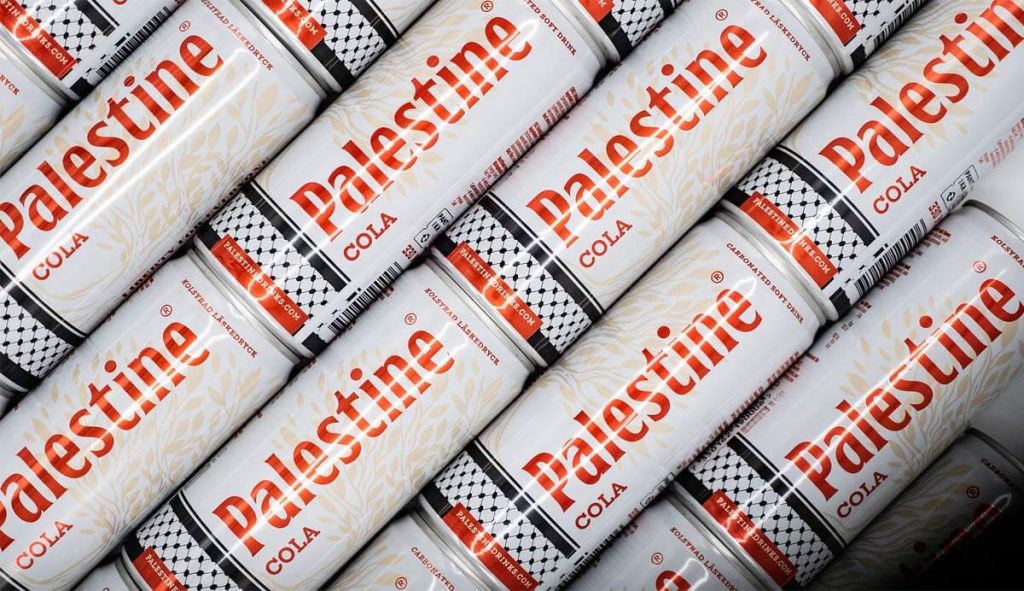
The Hassoun brothers invested $50,000 to start Palestine Drinks and took advice from a European consultant possessing vast experience in the beverages industry.
The brothers, who have invested just under $50,000 in their operation, sought advice from a consultant in Europe with vast experience in the drinks industry.
Highlighting the challenges, Kiswani shared that a sale of four million units in two months is too low when compared with Coca-Cola which sells over 1.9 billion servings daily, also, Pepsico products including both drinks and snacks generate over 1 billion in sales daily.
Currently, around 100 companies are interested in becoming distributors of Palestine Drinks across Australia, Asia, Canada, the US, MENA, and Europe.
“We are planning to extend outside of Europe, but it might take a couple of months,” said Kiswani
“Overseas, the first step will be the US and Canadian markets.” Kiswani added
Besides this, a few companies from the UAE showed interest in becoming distributors, plus helping with production.
“We have had more than 10 companies contact us from the UAE wanting to be distributors and also help with production,” Kiswani revealed
Kiswani also shared that the company faces obstacles with distribution in the Middle East, and requires at least three to four months to enter the market with its regional center.
“We are working on that (Middle East) project. It’s a little bit difficult because we have to make the can in Arabic and we have to make the regulations in Arabic, and all the various details, but let’s say three to four months hopefully.”
“As we expand, we understand that we need to have local production so when we come to the Middle East, we want to have production in the Middle East,” he said
Similarly, the company plans long-term to start selling in America with a production center in the country.


